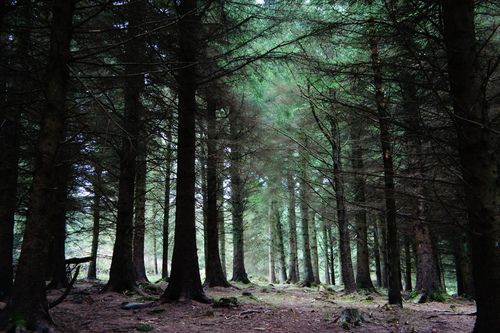Killarney park marked by lack of clear strategy to tackle rhododendron

August 13th, 2018
The beauties of Ireland’s national parks attract millions of tourists each year, bringing in a hefty chunk of revenue for both the State and local businesses across the country.
Yet, our rolling hills and green landscapes are increasingly met with striking challenges such as the invasion of non-native species.
Killarney National Park in Co Kerry, for example, is under threat of being overrun by rhododendron, with a third of the 10,300 hectares (ha) Park now overrun by the species.
Since it’s introduced to Ireland about 250 years ago, vast rhododendron monocultures have spread quickly. In Killarney National Park alone, hundreds of thousands of euro are spent every year in an attempt to eradicate the plant. The Department of Heritage recently said that 2,000ha in the Park are under control and require continual monitoring.
According to Trevor Halpin of Groundwork, a voluntary environmental group set up to tackle invasive species, an equally challenging issue, however, is the lack of a clear long-term strategy to deal with the issue.
He told The Green News that legislation to protect the national park is “weak” at best and that the Government doesn’t have a genuine management plan in place. The main consequence of this is habitat destruction, he says.
No clear strategy
Groundwork first got involved in rhododendron clearing in Killarney in 1981 and continued to apply its science-based approach for 25 years until a dispute with park management over the best way to control the species in 2009.
Rhododendron is now spreading in parts of the park where the organization had succeeded to keep clear for over 25 years in some cases, Halpin says. Removing the invasive species is an easy task, he says, but the hard part is to keep the woodland clear and is something that Park management has “been unable to achieve”.
Since 2011, the Government has spent over one million euro on rhododendron clearance, yet, Groundwork claims that clearing 40 per cent of oak woods in the Park should only cost around €20,000 a year.
Groundwork made a formal complaint to the European Commission earlier this year that the government is failing to protect the woods from becoming infested with Rhododendrons. “There is confusion on the direction of the park. There is no clear strategy and they are failing to protect the park,” Halpin says.
The Government announced last month its €257 million ten-year masterplan for preserving national parks and boosting the country’s tourism sector. It suggests charging for parking in Muckross but also calls for extended walking and cycling trails in Killarney Park.
For Halpin, national parks should not be “confused” with tourist attractions. “At the core of national parks, it should be the protection of habitats. We shouldn’t be putting paths to divide wooden or to break up habitats just because we want more tourists in an area.” Yet, if tourism should not come at the destruction of national parks, there is room for education, he added.
The Green News contacted the Department of Heritage and the National Parks and Wildlife Service but did not receive an answer at the time of publication.
Eating Scenery
The Park is set to become the principal character of a new documentary, with producer Elizabeth Grant telling The Greens News that the film will celebrate the park and the people taking care of it.
The film will also examine the problems of the Park, she says. Grant, whose family comes from Killarney, says that she has seen a “massive” change in the Park over the years, with many parts suffering from degradation.
Like Halpin, she believes that there has been the ineffective management of Rhododendron and called for a “zero tolerance attitude” toward the plant. Some of the 2,000 dear in the parks end up starving or getting the disease as their population is not managed adequately, she says.
The documentary will be filmed next spring, with the production team hopeful that it will be ready in time for the Killarney Film Festival in October 2019.
[x_author title=”About the Author”]







